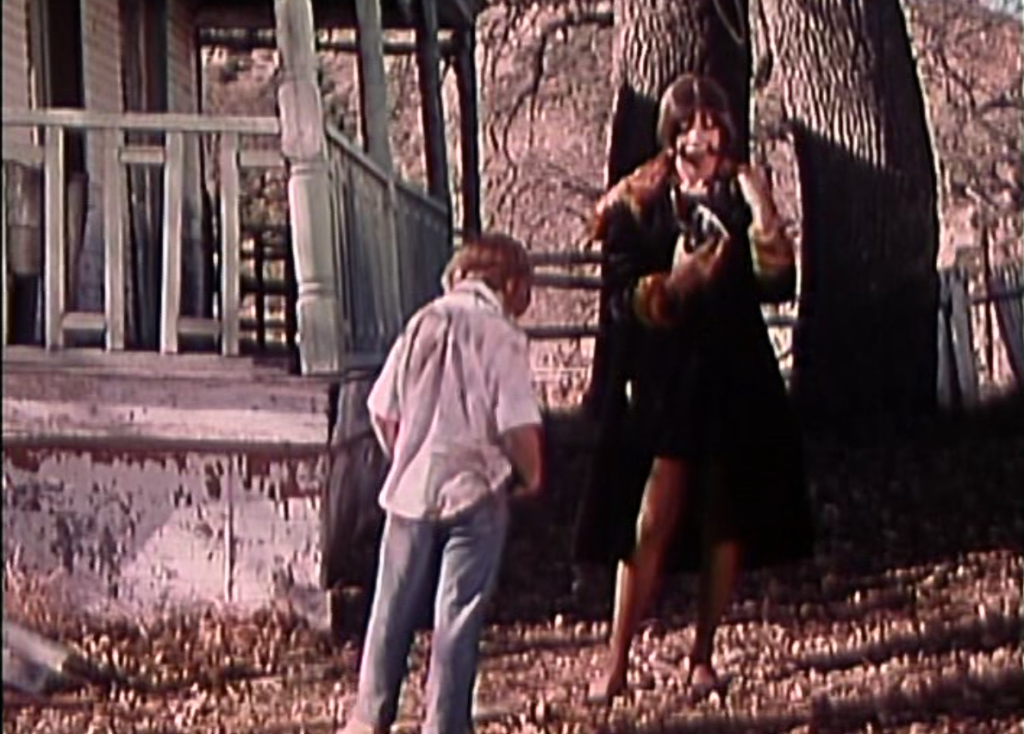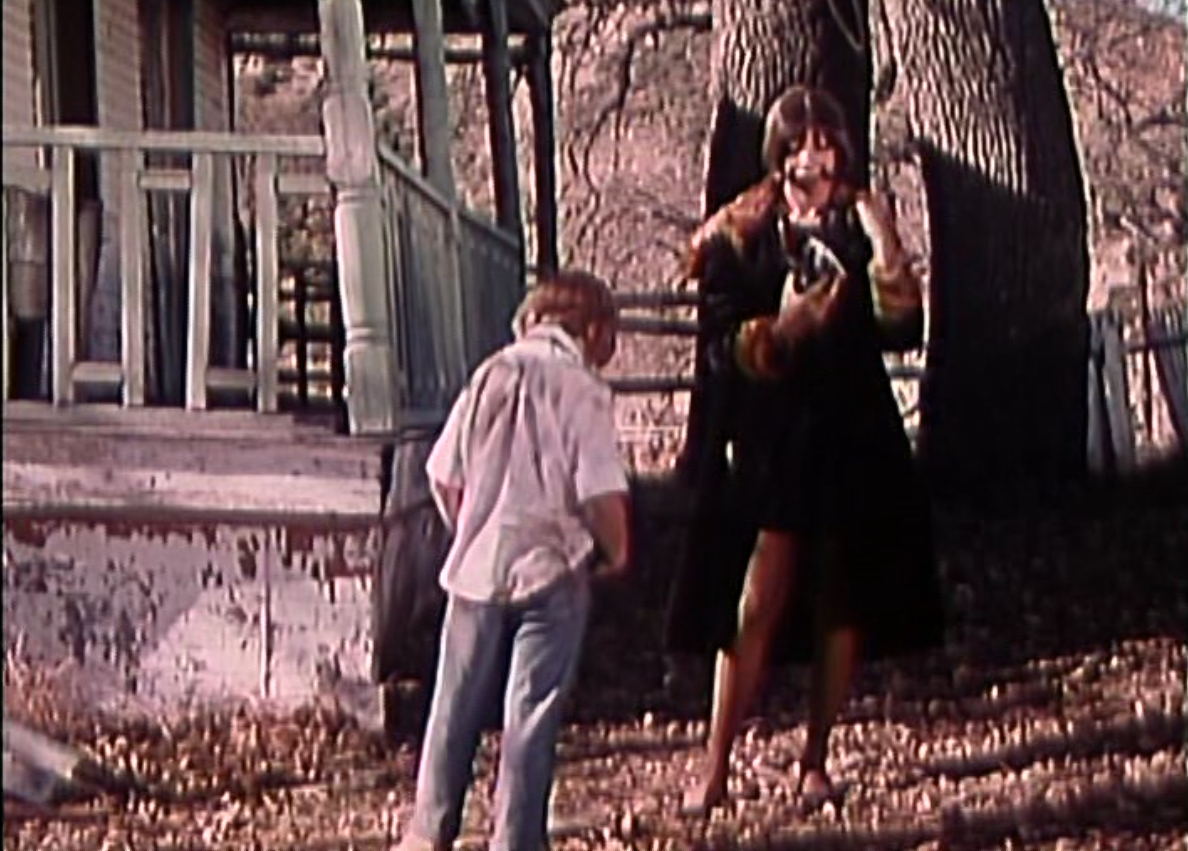Movie Review: Street Sisters (1974) directed by Arthur Roberson (aka Black Hooker)
Painted Woman (Sandra Alexandra) grew up poor on the farm of Grandpa (Jeff Burton) and Grandma (Kathryn Jackson). Grandpa is a hard man, for all that he’s a preacher on the side and spouts Bible talk. Grandma is well-meaning, but goes along to get along. Painted Woman fled to the big town as soon as she was able and became a prostitute. She was careless, and gave birth to a mixed-race but white-passing child. Knowing that her lifestyle would not allow her to raise the Boy (Teddy Quinn when young, Durey Mason older), she foisted him off on Grandma and Grandpa.

Boy just wants to be loved, but his grandfather never quite gets over Boy’s origins. Grandpa’s disdain is only held back by Grandma’s pleading for peace in the family. (It really does not help that Grandpa is quick to judge others, but even quicker to excuse his own bad behavior due to his special relationship with God.) Painted Woman seldom visits and shows little interest in her child.
One of the few bright spots in Boy’s life is the Girl (Gioya Roberson when young, Mary Reed older) his playmate and later sweetheart. It comes as a crushing blow when Boy finds out Grandpa has seduced Girl. Despite Grandma’s pleas, Boy runs off to the city. Painted Woman refuses to take Boy in, citing both her continued career and a lack of interest in supporting another person.
Boy manages to get a job (at least temporarily) and studies to graduate school, but tragedy is waiting to strike.
This movie was based on the stage play Don’t Leave Go My Hand by Arthur Roberson, but given snappier titles to fit in with the Blaxploitation fad of the 1970s. It’s really more of a melodrama set in the 1920-1930s (but not consistently) with some extra sex and violence. With the lack of names, perhaps it’s more allegorical than meant to be realistic.
The movie feels disjointed, as though some of the connecting scenes had been cut for time. I watched the Mill Creek edition, which may not have been a complete print. The acting is uneven–I am given to understand that many of the performers are first (and only) timers.
This is really more Boy’s story; we do get one extended sequence about Painted Woman doing her job, which she clearly does not actually enjoy so much as tolerate in exchange for not having to be on the farm. One of her tricks is mugged for no apparent reason.
Content note: Emotional abuse, Grandpa threatens physical abuse. Nudity and sex scenes (no genitals). A savage beating. Painted Woman smokes and drinks to show her fallen status. Racism is implied, rather than shown. Boy is repeatedly called a “bastard” even by people who don’t know the circumstances of his birth.
Overall: More of a curiosity than anything else. But it was in my watch pile, so there you have it.

